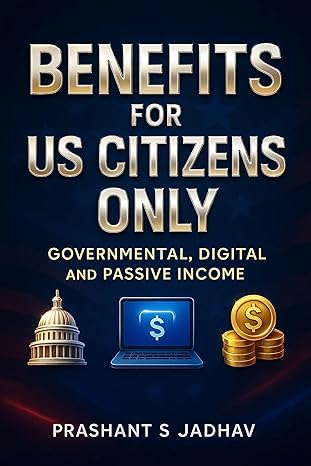Artificial Intelligence, commonly known as AI, has become one of the most powerful forces shaping the modern world. It works silently behind the screens we use every day—on our phones, computers, apps, and smart devices. Even though AI is everywhere, most people still feel confused or disconnected from it. The reason is simple: AI is often explained in complex, technical language that makes it seem difficult and unreachable. This is where the book AI All Concepts, with the tagline “For Everyone in Simple Language”, makes a meaningful difference.
AI is not only for engineers, programmers, or scientists. It is for students, teachers, business owners, professionals, creators, and everyday users of technology. To live confidently in today’s digital world, people do not need to build AI systems—they need to understand them. This book is created with that exact purpose: to explain AI clearly, simply, and without fear.
Understanding AI Beyond the Hype
AI is often surrounded by excitement, fear, and misunderstanding. Some people believe AI will solve every problem, while others fear it will replace humans. The truth lies somewhere in between. AI is a tool—designed by humans—to help machines learn from data, recognize patterns, and assist in decision-making.
When a video platform recommends content you like, or when your phone unlocks using your face, AI is at work. These everyday experiences show that AI is not science fiction; it is real, practical, and already part of our lives. AI All Concepts focuses on helping readers understand these ideas in a calm, logical, and easy-to-follow way.
Why AI Feels Difficult to Learn
One of the biggest challenges with AI education is language. Many books and articles use technical words, complicated theories, and heavy explanations that push beginners away. This creates the false belief that AI is “too hard” for normal people.
The goal of AI All Concepts is to remove that barrier. The book uses simple language, real-life examples, and clear explanations so that anyone—regardless of background—can understand AI. No advanced math. No complex coding. Just clear concepts explained step by step.
AI Is Already Changing Our Lives
AI is not something that will happen in the future—it is already happening now. In education, AI helps personalize learning. In healthcare, it helps analyze data and support doctors. In business, it improves customer experience and efficiency. In creative fields, AI supports writing, music, and design.
Understanding these changes helps people adapt instead of feeling left behind. AI All Concepts gives readers the awareness they need to understand how AI affects their work, studies, and daily life.
Learning AI Without Fear
Fear often comes from the unknown. Many people worry that AI will take jobs or make humans unnecessary. While AI does change how some tasks are done, it does not replace human thinking, creativity, or emotions. AI depends on human guidance, values, and decisions.
This book explains both the abilities and limitations of AI in a balanced way. It shows where AI is useful and where humans are still essential. By doing this, it replaces fear with understanding and confidence.
Simple Language, Strong Foundation
The tagline “For Everyone in Simple Language” defines the heart of the book. It is written for beginners, non-technical readers, and anyone curious about AI. Concepts are explained using everyday situations instead of technical jargon. Readers are guided gently from basic ideas to broader understanding.
The book does not try to impress readers with complexity. Instead, it focuses on clarity. This makes learning enjoyable and stress-free, encouraging readers to continue exploring AI with confidence.
Why This Book Is Important Today
We live in a world where AI influences information, decisions, and opportunities. From social media feeds to online shopping and digital communication, AI plays a role in shaping what we see and experience. Understanding AI is becoming as important as understanding the internet or smartphones.
AI All Concepts helps build that understanding. It supports AI literacy, which is essential for making informed decisions in the digital age. When people understand AI, they gain control instead of feeling controlled by technology.
AI as a Human Partner
One of the key messages of the book is that AI is not a replacement for humans—it is a partner. AI can process large amounts of data quickly, but it cannot think, feel, or make moral decisions like humans do. The best results happen when AI and humans work together.
By understanding AI concepts clearly, readers learn how to use technology responsibly and wisely. Knowledge empowers people to shape how AI is used in their lives and communities.
An Open Door to Understanding AI
AI All Concepts is more than just a book—it is an invitation. An invitation to understand one of the most important technologies of our time without stress or confusion. It welcomes readers from all backgrounds and gives them the confidence to say, “I understand AI.”
In a world driven by intelligent systems, knowledge should not be limited to a few. With AI All Concepts – For Everyone in Simple Language, AI becomes approachable, understandable, and human. This book ensures that anyone, anywhere, can begin their AI journey with clarity and confidence.









